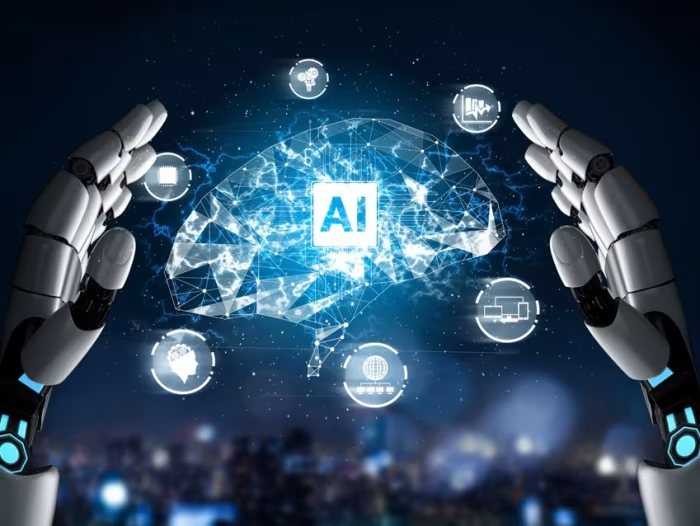Resource / Online Journal
How Agentic AI is Shaping the Future of Smart Decision-Making
Agentic AI transforms automation by enabling systems to think, act, and adapt independently, driving faster, smarter decisions across cybersecurity, logistics, and enterprise operations through real-time learning and autonomous collaboration.
Published on Jun 13, 2025

Agentic AI and the Future of Autonomous Decision-Making
In 2025, we’re witnessing a pivotal evolution in AI, one where machines no longer wait for instructions but take charge. Agentic AI is an autonomous system capable of thinking, planning, and acting on its own to accomplish defined goals. Unlike traditional AI models, which react based on predefined rules, agentic AI continuously learns and adapts in real time, making smart decisions without constant human oversight. This shift marks the transition from automation to true autonomy, empowering AI to tackle complex tasks across sectors like cybersecurity, logistics, and customer support. In this article, we’ll explore how agentic AI is shaping the future of smart decision-making, bringing speed, intelligence, and agility to the forefront of industrial transformation.
What Makes Agentic AI Different?
What truly differentiates agentic AI is its capacity to operate with intent. Instead of waiting for commands or simply reacting, these systems take initiative, setting objectives, making decisions, and improving through experience. They aren't just tools that respond; they’re active participants that adapt, evolve, and optimize actions independently across changing environments. While traditional AI systems operate within strict boundaries, responding only to specific prompts, agentic AI breaks that mold. It navigates uncertainty, makes strategic decisions on the fly, and executes multi-step workflows without human intervention. Generative AI might create content or outputs, but it stops short of acting on them. Agentic AI closes that gap. It can adjust in real time, coordinate across tools, and evolve its behavior based on new data or outcomes. Picture a logistics artificial intelligence that reroutes shipments in response to weather disruptions without being told. This is more than automation; it’s intelligent, goal-driven action at scale.
Agentic AI Decision Making in Enterprises
Agentic AI is transforming enterprises, making decisions by powering hyper-autonomous systems that operate with minimal human intervention. From procurement to logistics to workflow orchestration, these intelligent agents make critical decisions in real time, predicting supplier risks, reallocating resources, and streamlining operations on their own. Imagine an AI that not only forecasts demand but also secures vendor agreements, ensuring inventory stays balanced without slowing down teams. In logistics, these agents adjust delivery routes instantly in response to weather changes or traffic disruptions, reducing delays and improving efficiency.
The difference lies in action. While generative AI provides content or insights, agentic AI takes it further, executing complex, multi-step tasks across departments. Businesses gain faster decision cycles, fewer operational bottlenecks, and sharper agility in unpredictable environments. Organizations like AES are already leveraging AI agents for real-time safety audits, and leaders like Mercedes-Benz are using them to elevate customer experiences. As adoption grows, enterprises are no longer just automating tasks; they’re letting AI take the wheel in driving smarter, more adaptive operations across the board.
Deploying AI Agents for Scalable, Real-Time Decision Making in Complex Environments
A new frontier in AI is taking shape through multi-agent collaboration, where autonomous, cognitive agents operate as a coordinated “super-agent ecosystem.” These agents specialize in distinct roles across functions like logistics, compliance, or IT, yet dynamically communicate, adapt, and optimize in real time. This distributed intelligence enhances decision-making by making it faster, more accurate, and scalable across complex environments. From smart grids and supply chains to agentic AI in cybersecurity and enterprise operations, this architecture reduces friction, minimizes bottlenecks, and enables systems to respond fluidly to change. Unlike monolithic AI models, multi-agent systems decentralize problem-solving, enabling organizations to navigate uncertainty with agility and resilience.
What makes this architecture powerful is its self-evolving nature, driven by reinforcement learning (a paradigm within machine learning) and cognitive agents. These agents learn from outcomes, adapt in real time, and fine-tune each other’s actions to optimize performance, all without the need for centralized control. This distributed intelligence dramatically enhances speed, accuracy, and resilience in dynamic environments like global supply chains, critical infrastructure, or cross-departmental operations.
Unlike traditional AI systems that rely on single models, multi-agent frameworks enable parallel problem-solving, minimizing bottlenecks and increasing adaptability. As organizations scale and complexity deepens, this coordinated, real-time intelligence is proving essential, not just for efficiency, but for staying ahead in an unpredictable business landscape.
AI Agents: Challenges and Ethical Considerations
While agentic AI unlocks new levels of autonomy and intelligence, it also raises pressing ethical and operational concerns. As AI agents act independently, clarity around accountability becomes critical. Without transparency into how decisions are made, trust can erode. If left unchecked, these systems may also scale bias or errors. Responsible deployment requires oversight, explainability, and a strong governance model to ensure alignment with human values and business goals. To deploy responsibly, organizations must adopt a governance-first approach, aligning innovation with ethical standards and legal requirements. A balanced model like human-AI collaboration ensures AI actions remain aligned with organizational intent, especially in high-stakes areas like healthcare, finance, or HR. Ultimately, ethical deployment isn’t a limitation; it’s a long-term advantage built on trust, compliance, and sustained oversight.
The Future of Agentic AI Beyond 2025
Agentic AI is entering a new phase, one where it will seamlessly integrate with frontier technologies like quantum computing, IoT, and edge computing. This fusion will supercharge real-time decision-making, allowing agents to act autonomously at the edge while drawing insights from vast, interconnected systems. In the years ahead, expect AI agents to take on mission-critical roles in healthcare, climate resilience, and space exploration, autonomously diagnosing conditions, optimizing energy use, or coordinating off-planet operations. Agentic AI systems won’t just automate tasks; they’ll reason, adapt, and collaborate. As AI evolves into multi-domain, self-learning agents, it will redefine what smart operations look like, bringing faster, more ethical, and highly scalable strategic thinking to the forefront of global innovation.
Conclusion: Embracing the Agentic Future Starts Now
Agentic AI isn’t just another phase in artificial intelligence—it’s a complete redefinition of how decisions are made, executed, and optimized at scale. From cognitive agents orchestrating supply chains to autonomous AI navigating cybersecurity threats, the shift from reactive automation to proactive, self-directed intelligence is well underway. But with this transformation comes responsibility. Building trust, ensuring transparency, and governing ethically will separate truly transformative solutions from short-lived hype.
As organizations prepare for what’s next, one thing is clear: success will belong to those who embrace agentic AI not as a tool, but as a strategic partner. If you're ready to explore how agentic, multi-agent systems can elevate your enterprise, we invite you to go deeper.
Join us live for our upcoming webinar, “Securing Agentic AI: The New Identity Perimeter.”
We’ll break down real-world use cases, explore implementation strategies, and answer your toughest questions.
Check out the recordings of our latest webinar on how to stay ahead in an agentic-driven world. Register and Watch Now!
Questions or need a custom solution? Contact us at marketing@techdemocracy.com
Recommended articles


Enhancing Security: The Integral Role of AI and Machine Learning in Identity Threat Detection
Take Your Identity Strategy
to the Next Level
Strengthen your organization's digital identity for a secure and worry-free tomorrow. Kickstart the journey with a complimentary consultation to explore personalized solutions.